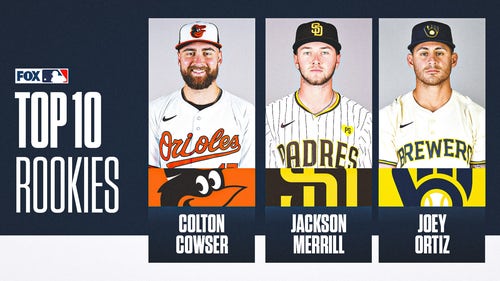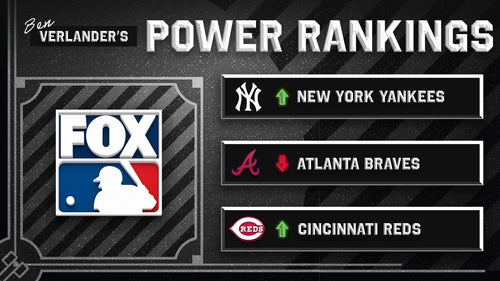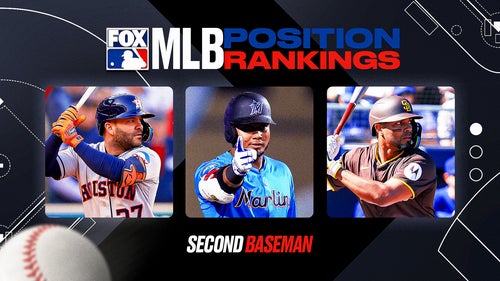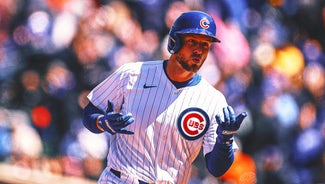





































































































































MLB History: Ban on Black Players Voted Down
Before the unspoken decision to ban black players from being a part of MLB teams, an attempt was made to make that a rule. On this day in 1883, the Peoria Reds of the Northwest League attempted to make that ban an official rule.
While Jackie Robinson is famous for breaking the MLB color barrier, he was not the first black player in the history of the game. While there is a bit of debate as to who was officially the first black player in the game, credit tends to be given to Fleet Walker, a catcher for the Toledo Blue Stockings in the American Association in 1884.
However, Walker's inclusion on the team was a matter of contention for many. Segregation was still the law of the land in a lot of areas, and racism was rampant. The United States was less than twenty years from the end of the Civil War and the abolishment of slavery, making the attitude towards minorities quite negative.
That attitude was obvious on this day in 1883. Before the Toledo Blue Stockings joined the American Association, they were a part of the Northwest League. On this day in 1883, the Peoria Reds, continuing the tradition of racism that was prevalent throughout the country, sought a formal ban on black players. This move would bar the Blue Stockings star catcher, Fleet Walker, from being a part of the league.
More from Call to the Pen
Given the general lack of black players in the league, this attempt to ban them sparked a great deal of debate. In fact, discussions became quite heated at times. Eventually, the motion was withdrawn, and Walker was allowed to play.
That was not the end of the racism that he faced in his career. Cap Anson once threatened to have the Cubs skip an exhibition game if Walker played, but he eventually caved in and agreed to play against him. However, after the 1884 season, that unwritten ban against black players came into being, leaving Walker, and his brother Welday Walker, on the outside.
It is unfortunate, as Fleet Walker was considered a star in his one year in the MLB. His .263/.325/.316 batting line may not seem great, but it was worth an OPS+ of 107. Also, at the time, catchers were not great hitters. His defensive numbers are skewed as pitchers like Tony Mullane would throw whatever they wanted, refusing to listen to a black player. Nonetheless, Mullane said that he considered Walker the greatest catcher he ever had.
Walker had another chance to return to the Majors a couple of years later. In 1887, John Ward wanted to sign Walker to the New York Giants. Unfortunately, Anson and others had the position and pull where they could nix that signing from happening, making sure that black players were kept away from the game.
The color line eventually came to baseball, but it took a couple of years. That first attempt came on this day in 1883, and was eventually withdrawn.

MLB Buy or Sell: Braves fine sans Strider? Trout staying put? Phillies in trouble?

Shōta Imanaga, Colton Cowser headline MLB's 10 best rookies

20 Best pitchers in MLB 2024: Ranking the top 20 starters

2024 MLB predictions by Ben Verlander: Standings, playoffs, World Series

2024 World Series odds: Dodgers, Braves still at the top

2024 MLB Power Rankings: Dodgers No. 1? Cubs top 10?

Ranking the 10 best shortstops in MLB 2024

Ranking the 10 best second basemen in MLB 2024


MLB Buy or Sell: Braves fine sans Strider? Trout staying put? Phillies in trouble?

Shōta Imanaga, Colton Cowser headline MLB's 10 best rookies

20 Best pitchers in MLB 2024: Ranking the top 20 starters

2024 MLB predictions by Ben Verlander: Standings, playoffs, World Series

2024 World Series odds: Dodgers, Braves still at the top

2024 MLB Power Rankings: Dodgers No. 1? Cubs top 10?

Ranking the 10 best shortstops in MLB 2024

Ranking the 10 best second basemen in MLB 2024
